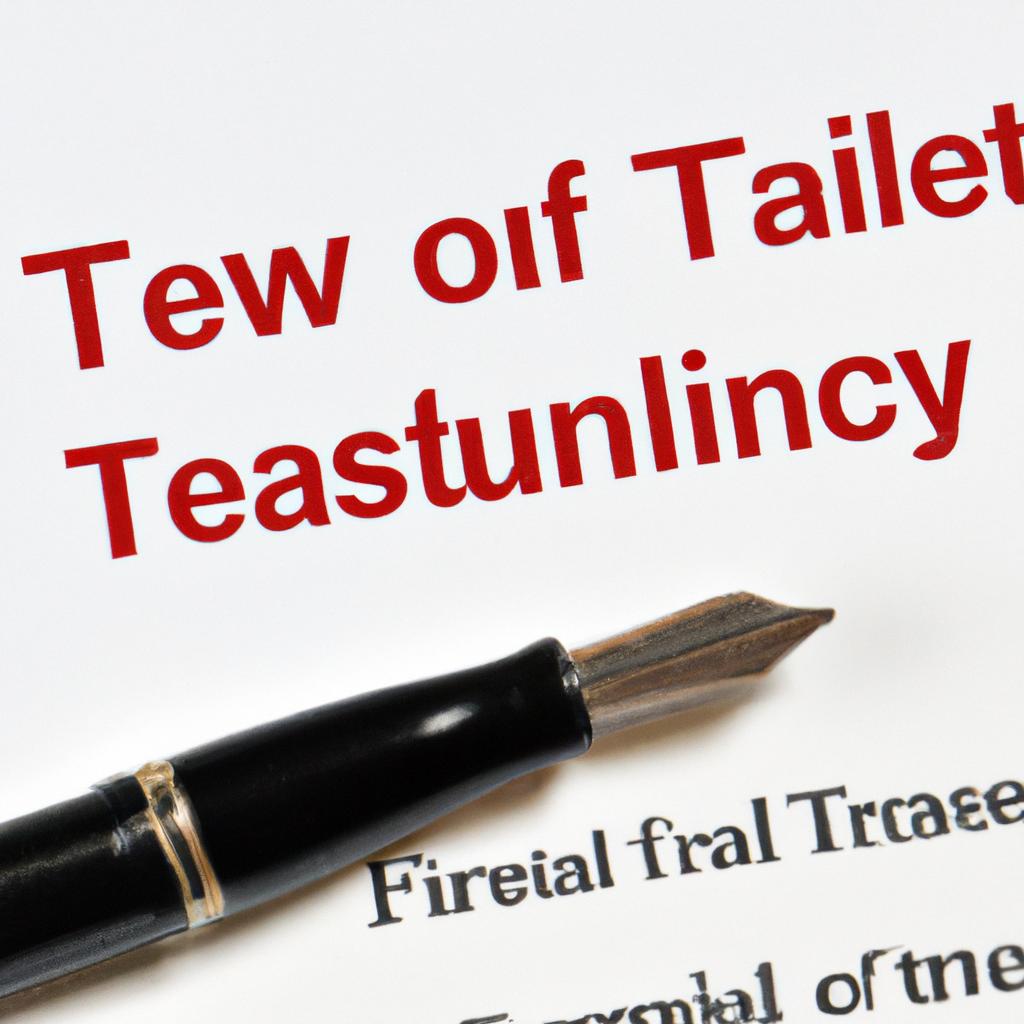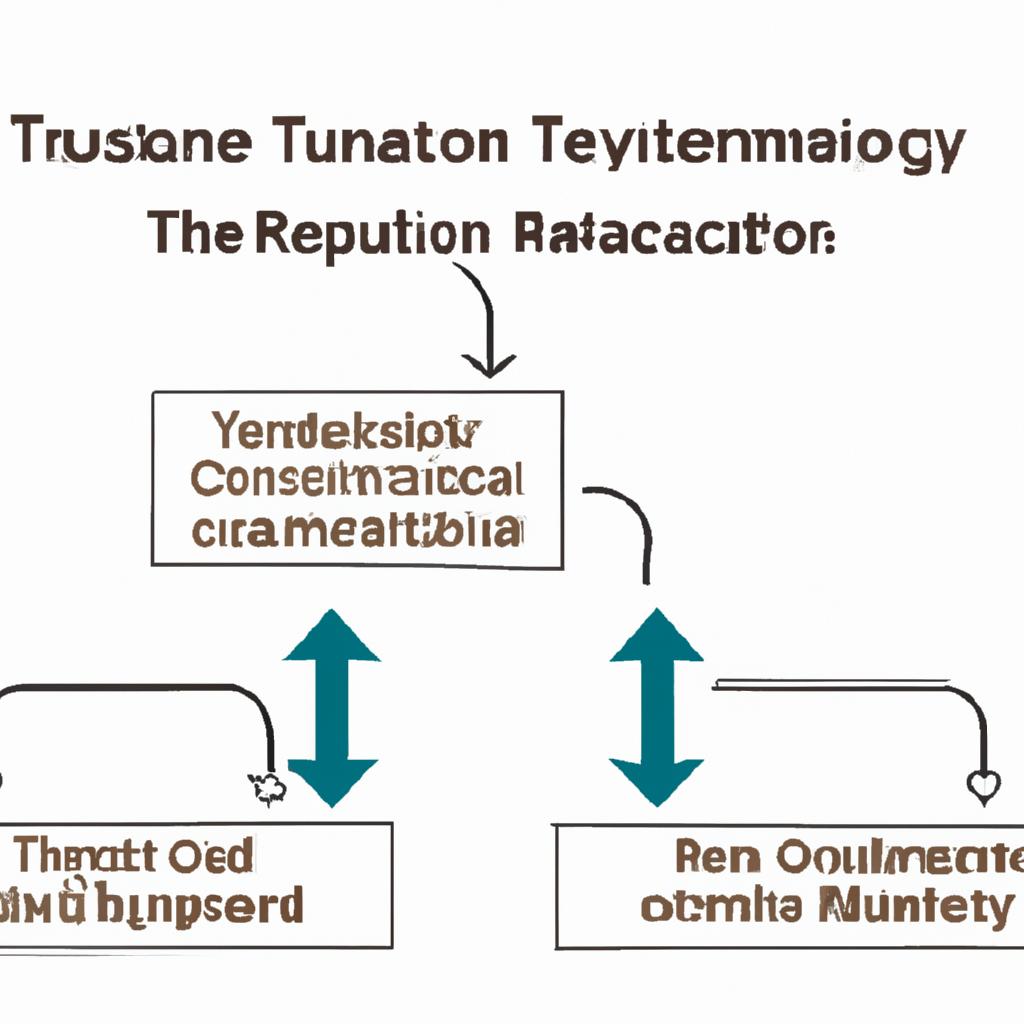In the intricate realm of estate planning and trust administration, the role of a trustee carries great responsibility and authority. However, even the most meticulously crafted trusts are not immune to the inevitability of death. When a trustee passes away, the ramifications can be far-reaching and complex. In this article, we will examine the legal implications and practical considerations surrounding the death of a trustee, shedding light on the crucial steps that must be taken to ensure a smooth transition of trust management. As seasoned practitioners in the field of estate law, the Morgan Legal Group stands ready to guide our clients through this challenging process with expertise and precision.
Understanding the Role and Responsibilities of a Trustee in Estate Planning
In the unfortunate event of the death of a trustee, it is crucial to understand the implications and responsibilities that come with this role. When a trustee passes away, there are certain steps that need to be taken to ensure the smooth transition of their duties and responsibilities. Here are some key points to consider:
- Identify a Successor Trustee: The first step is to identify a successor trustee who will take over the responsibilities of the deceased trustee. This individual should be someone who is trustworthy, competent, and willing to fulfill the duties of a trustee.
- Notify Beneficiaries: It is important to inform the beneficiaries of the trust about the death of the trustee. This communication should be done in a timely and sensitive manner, providing them with any necessary information regarding the next steps in the trust administration process.
Additionally, the successor trustee will need to review the terms of the trust document and understand their legal obligations moving forward. They may also need to work closely with legal professionals, such as estate planning attorneys, to ensure that the trust is administered in accordance with the law and the wishes of the deceased trustee. Overall, the death of a trustee can be a complex and challenging situation, but with proper planning and guidance, the trust administration process can be managed effectively.

Key Considerations and Implications of a Trustee’s Death in a Trust
When a trustee passes away, it can have significant implications on the administration of a trust. The key considerations that need to be addressed include:
- Successor Trustee: One of the most important steps is to identify and appoint a successor trustee who will take over the responsibilities of managing the trust upon the death of the original trustee.
- Legal and Financial Implications: The death of a trustee can trigger legal and financial implications, such as the need to update legal documents and notify beneficiaries of the changes.
Furthermore, the death of a trustee can also impact the distribution of assets, as well as the overall management of the trust. It is crucial to work with an experienced estate planning attorney to navigate the complexities that arise from the death of a trustee and ensure that the trust is administered in accordance with the wishes of the grantor.

Navigating the Legal Process and Ensuring a Smooth Transition in the Event of a Trustee’s Passing
It is with great care and meticulous attention to detail that we must approach the legal process following the passing of a trustee. Ensuring a smooth transition is paramount to avoiding any potential complications or disputes. The key steps to navigate this process effectively are as follows:
- Identifying and notifying all interested parties, beneficiaries, and stakeholders.
- Reviewing and interpreting the trust document to understand the specific instructions and roles designated for the trustee’s passing.
- Evaluating the assets and liabilities of the trust to determine the next steps for administration.
- Communicating with financial institutions, legal professionals, and tax authorities to facilitate the transfer of assets and settle any outstanding obligations.
In the event of a trustee’s passing, it is essential to seek legal guidance and expertise to navigate the complexities of trust administration effectively. Our team at Morgan Legal Group is here to assist you every step of the way, ensuring a seamless transition that upholds the intentions of the trust and safeguards the interests of all involved parties. Trust in our experience and dedication to guide you through this challenging time with professionalism and care.
Strategies for Selecting Successor Trustees and Safeguarding the Continuity of Trust Operations
When a trustee passes away, it is crucial to have a solid plan in place to ensure the continuity of trust operations. One strategy to safeguard against disruptions is to select successor trustees in advance. By appointing backup trustees, you can ensure that there is always someone available to step in and manage the trust in the event of unforeseen circumstances.
Another important consideration is to provide clear guidelines and instructions for the successor trustees to follow. This can include outlining the duties and responsibilities of the trustee, as well as detailing how trust assets should be managed and distributed. By setting forth these guidelines in advance, you can help ensure a smooth transition and minimize the risk of any confusion or disputes arising among beneficiaries.
Q&A
Q: What is a trustee and why is their role important?
A: A trustee is a person or organization that is given legal authority to manage assets on behalf of another party, known as the beneficiary. Their role is crucial in ensuring that the assets are properly managed and distributed according to the wishes of the beneficiary.
Q: What happens in the event of the death of a trustee?
A: In the event of the death of a trustee, a successor trustee or alternate trustee typically steps in to take over the responsibilities of managing the assets. If there is no successor trustee named or if the trustee dies without a will, the probate court will appoint a new trustee.
Q: What steps should be taken if a trustee passes away?
A: If a trustee passes away, it is important to review the trust document to determine if a successor trustee has been named. If not, it may be necessary to petition the court for the appointment of a new trustee. It is also crucial to notify all beneficiaries and interested parties of the trustee’s death and the steps being taken to appoint a new trustee.
Q: What are the potential implications of the death of a trustee on the management of assets?
A: The death of a trustee can create uncertainty and delays in the management and distribution of assets. It is important to ensure that there is a clear plan in place for the appointment of a new trustee to prevent disruptions in the administration of the trust.
Q: How can individuals ensure a smooth transition in the event of the death of a trustee?
A: To ensure a smooth transition in the event of the death of a trustee, individuals should regularly review and update their estate planning documents, including the appointment of trustees. It is also important to communicate with beneficiaries and trustees about their roles and responsibilities to avoid confusion and disputes in the future.
Future Outlook
In conclusion, the death of a trustee can have significant implications for a trust and its beneficiaries. It is important to have a plan in place in the event of a trustee’s passing, to ensure a smooth transition and proper management of the trust. By understanding the legal and practical considerations involved, both trustees and beneficiaries can navigate this challenging situation with clarity and confidence. Death may be inevitable, but with careful planning, the legacy of a trust can endure beyond the life of its trustee.


